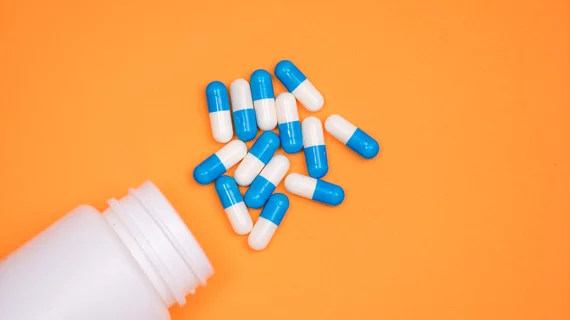Johnson & Johnson to appeal $572M opioid judgment
Pharmaceutical, medical device and consumer packaged goods company Johnson & Johnson has been ordered to pay $572 million to the state of Oklahoma after a judge found the company downplayed the dangers of its opioid painkillers and contributed to the opioid overdose epidemic in the state.
Oklahoma has been rocked particularly hard by opioid abuse, spurring the state to go after drugmakers in order to help pay for drug addiction treatment and other services. The judgment fell $17 billion short of what the state sought in its lawsuit.
According to Johnson & Johnson, it has used responsible marketing practices for its medications, Duragesic, Nucynta and Nucynta ER, which make up less than 1% of total opioid prescriptions in Oklahoma and the U.S.
Several states have ramped up the blame of the opioid abuse crisis on the drug industry, suing big companies like Purdue Pharma for its role in the epidemic. President Trump even once spouted off against drugmakers, arguing there should be a federal case against pharma companies last year. Recently, Purdue Pharma, which manufactures the popular opioid OxyContin, agreed to a $270 million settlement to help battle the opioid crisis in Oklahoma after a number of lawsuits were launched against the company. There are roughly 2,000 opioid lawsuits pending in the U.S., The New York Times reported.
For its part, Johnson & Johnson plans to appeal the $572 million judgment. In 2018, there were 68,000 drug overdose deaths in the U.S. related to opioids, according to the CDC.
“Janssen did not cause the opioid crisis in Oklahoma, and neither the facts nor the law support this outcome,” Michael Ullmann, executive vice president of general counsel at Johnson & Johnson, said in a statement. “We recognize the opioid crisis is a tremendously complex public health issue and we have deep sympathy for everyone affected. We are working with partners to find ways to help those in need.”
The company further stated that the judgment is flawed and expects the appeals process to extend into 2021.

